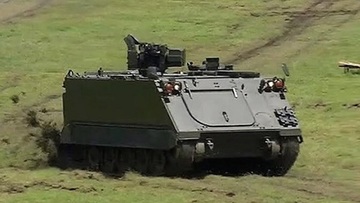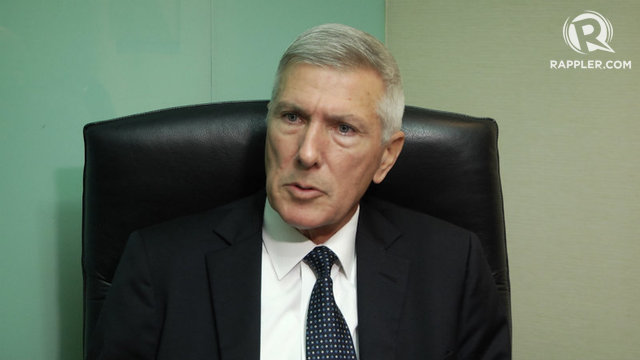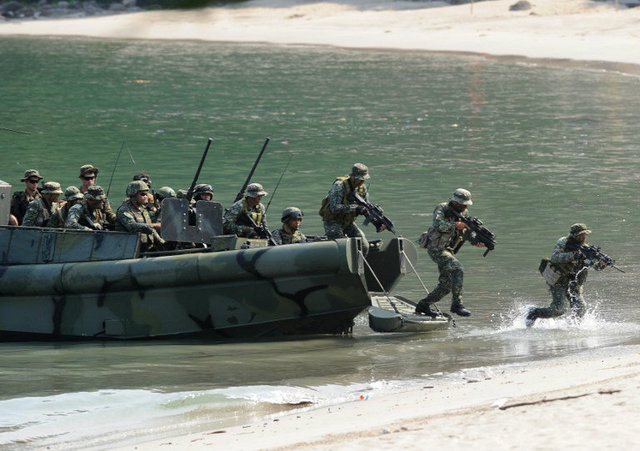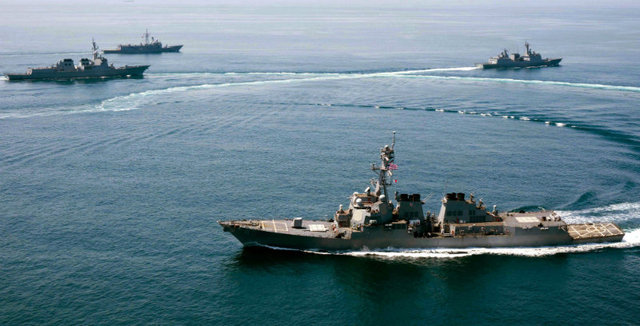COUNTER-TERRORISM expert said Thursday the government must develop stronger anti-terrorism measures even as Australia and Singapore have recognized Islamist extremists as a clear and present danger to Southeast Asia.
Australia and Singapore, worried over the Islamic State threat in the region, forged stronger cooperation to meet security challenges in the face of the rapid rise of extremism.
“There must be a continuing process of overt investigation and data gathering in order to determine and approximate if the threat of terrorism in the country is really existing,” said the expert, who spoke on condition of anonymity.
The meeting by defense and police officials from Australia and Singapore was held after the London-base Mail Online detailed the ISIS organizational structure highlighting the spread of terror across the globe, including five cells in the Philippines and two in Malaysia and Indonesia that pledge support to the Islamist extremists.
The five groups that pledge support to ISIS were the Ansar Khilafa Philippines, Bangsamoro Islamic Freedom Fighters, Ma’rakat Al Ansar, Ansar Khilafa and the Abu Sayyaf Group, the Jemaah Islamiyah in Indonesia and Mahajidden Timor in Malaysia.
Singapore, the front-line state in the war of terror, has outline measures to prevent homegrown extremism following the arrest of a self-radicalized Muslim lawyer that they said posed a security threat.
In the wake of global threat by ISIS in Southeast Asia, Australian Justice Minister Michael Keenan met with Philippine National Police chief Ricardo Marquez in Camp Crame Thursday to lay out cohesive intelligence measures amid the serious threat posed by ISIS following the series of gun and bomb attacks in Paris and West Africa that left over 100 dead and another hundreds wounded.
Military and defense officials, however, continue to belittle the threat by the Islamic State in the country saying local terrorist wanted merely to attract international prominence and to advance their banditry, including kidnapping for financial gain.
“There is what we call terrorism threat assessment,” the expert said as he recommended a serious evaluation and analysis of information emanating from various sources to determine the credibility of it.
He also underscore the need to review previous information relating the existence of various threat groups operating in the country, particularly in Mindanao where reports said that at least 11 foreign nationals whose mission remained unknown were spotted in different areas in the southern backdoor.
AFP spokesman Col. Restituto Padilla has said they have not received any credible threat from terror group out to launch attacks in the country, but Malacañang urged Filipinos to avoid public places and to be vigilant.
“You cannot assess or analyze information without looking back or reviewing information,” the security expert said.
“ISIS has the capacity to conduct a cross-geographical region operations based on the level of sophistication of operations as they did in Europe, Africa and the Middle East,” the source added.
The government on Thursday welcomed the Australian government’s commitment to help the Philippines improve its surveillance, intelligence and forensic investigation to prevent a similar terror attack in Paris by Islamist militants in the Philippines.
The support to improve the fight against international and local terrorists was part of the Philippine-Australian agreement signed between President Benigno Aquino III and Australian Prime Minister Malcolm Turnbull at the sidelines of the Asia-Pacific Economic Cooperation in Manila in November.
Under the agreement, Australia and the Philippines will step up exchange of information, concentrating on the flow of Southeast Asian militants traveling to and from Syria and Iraq.
The increased cooperation was discussed by top Philippine police officials with Keenan and Federal Police Commissioner Neil Gaughan, who are on a tour of Southeast Asia.
A report also quoted a police official, saying “they always consider the potential threat posed by radicalized Filipinos supporting the ISIS.”
“We are concerned with the risk of ISIS elements traveling to the country to promote violent extremism and, worse, to seek haven or use the country as a transit point in going to conflict zones,” the official who asked for anonymity said.
Counter terrorism officials from both countries are worried over the presence of about 2 million Filipino contract workers in the Middle East, some of whom are in Iraq and Syria and who may be radicalized by the Islamic State.
http://www.thestandard.com.ph/news/-main-stories/top-stories/194128/ph-must-get-tough-on-terrorism-experts-say.html




